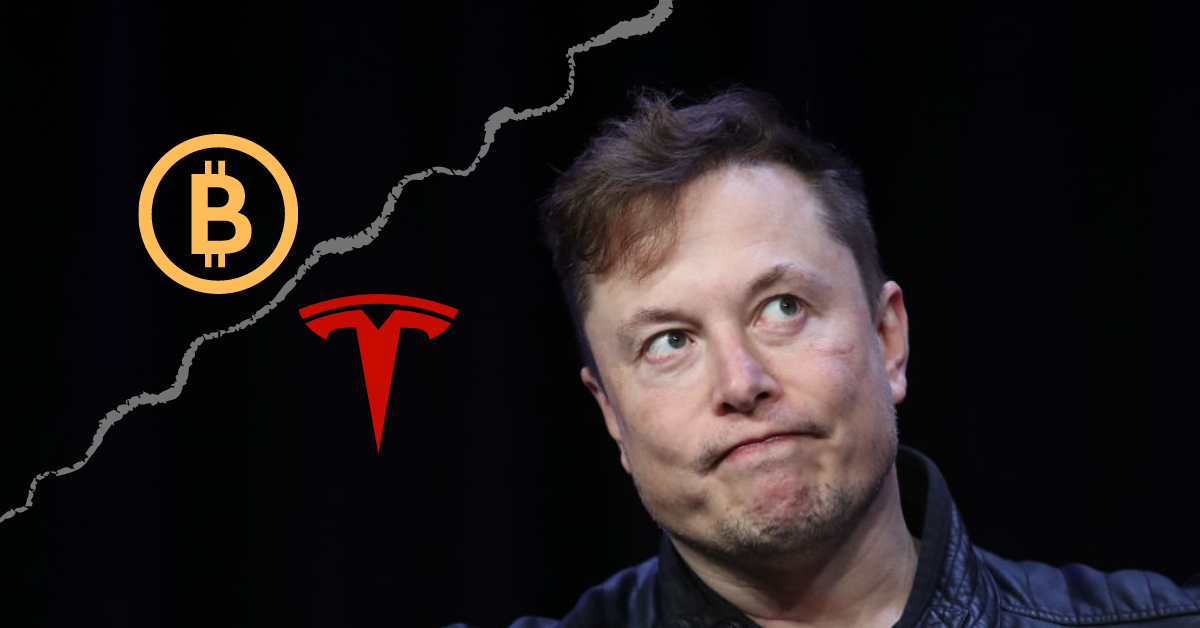14 May, 21
Tesla not accepting Bitcoin – Does it have an energy problem?

Tesla’s founder Elon Musk announced on Thursday (AEST) that Tesla will no longer accept bitcoin as a form of payment due to environmental concerns from the crypto mining’s energy consumption. However, in the official statement presented by Musk’s Twitter account, the CEO addressed that Tesla will not be selling its current holdings of bitcoin valued at approximately $2.5 billion. The company intends to keep using it “as soon as mining transitions to more sustainable energy.”
The move is considered a surprising one from the CEO and his company, with Tesla acquiring $1.5 billion in bitcoin merely three months ago as Musk constantly talked about the asset and even changed his Twitter bio to simply “#bitcoin.”
So what are the environmental concerns that Elon Musk mentions, and does bitcoin really have an energy consumption problem?
Main factors to consider
According to Digiconomist’s latest figures, bitcoin mining consumes an average of 115 TeraWatt-hours per year. That would be yearly comparable to the energy consumption of the Netherlands. Statista’s index, however, sets the average at a much lower rate of 89 TWh. Regardless of the substantial discrepancy between reports or even past debates on the accuracy of bitcoin energy consumption indexes, utilising such data as reference does not exclude the following points to consider.
A large portion already comes from renewable energy sources
That is the main data usually left out of reports or not properly investigated on the issue; the fact that most bitcoin miners are consuming energy at least partially through renewable sources. According to a September 2020 report from Cambridge, a whopping 76% of bitcoin miners use renewable sources in the mix of their overall energy consumption. When it comes to fully renewable energy, the university reported that a proportional 39% of all bitcoin mining is done through completely green methods.
That’s a very large slice of the pie. In comparison, about 11% of the world’s primary energy came from renewable sources in 2019, while 25% of global energy consumption originated from renewable sources. That’s about 14% lower than bitcoin’s use of fully renewable energy in the world. If bitcoin mining indeed consumes as much yearly energy as the Netherlands, then the country is falling behind on renewables. Representing only 0.22% of the world’s population, Netherlands’ most recent energy report from the International Trade Administration stated that merely 7.4% of the nation runs on renewable energy.
The global average in green energy consumption may be able to catch up to the crypto around 2040 if bitcoin continues at the same average without further renewable adoption. However, that is quite unlikely.
The path towards fully green bitcoin mining is very achievable
That is because the process of bitcoin mining is not limited by traditional industry challenges such as topography, weather, proximity to particular energy sources and ethical barriers of potentially dismantling an enormous fuel workforce that’s been around for hundreds of years. There are thousands of great initiatives created by nations and corporations towards implementing renewable energy, yet reaching such a goal is anything but simple.
For bitcoin, however, the mining’s simplicity is its main ally for the cause. As long as the individual or the group has computing systems powerful enough to mine the currency effectively, it doesn’t matter how or where the process occurs. The practical accessibility for green energy makes bitcoin’s transition to fully renewable energy easier than any other industry. Twitter’s CEO Jack Dorsey argued that bitcoin incentivises renewable energy, replying to Square’s recent report about the asset’s adoption serving as a catalyst towards greater incentive for clean energy sources. Elon Musk replied to Dorsey’s tweet on the Square report merely three weeks ago agreeing with the conclusion before suddenly deciding on Tesla not accepting bitcoin.
Zerocap provides digital asset investment and custodial services to forward-thinking investors and institutions globally. Our investment team and Wealth Platform offer frictionless access to digital assets with industry-leading security. To learn more, contact the team at [email protected] or visit our website www.zerocap.com
Like this article? Share
Latest Insights
Ethereum Smart Contracts: How They Changed Crypto
Ethereum, launched in 2015, revolutionized the digital world by introducing “smart contracts,” self-executing contracts with the terms of the agreement directly written into code. This
Main Crypto Events in the World
The world of cryptocurrencies is dynamic and ever-evolving, with numerous conferences and events held globally to foster innovation, collaboration, and networking among crypto enthusiasts. Here’s
What is Ethena Finance?
Ethena Finance (ENA/USDe) is emerging as a notable player in the cryptocurrency and decentralized finance (DeFi) sectors. Powered by its proprietary stablecoin, USDe, Ethena aims
Receive Our Insights
Subscribe to receive our publications in newsletter format — the best way to stay informed about crypto asset market trends and topics.



 Share
Share  Tweet
Tweet  Post
Post 